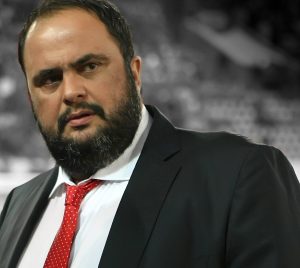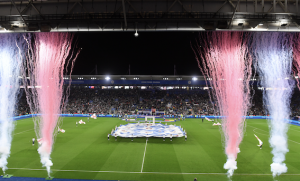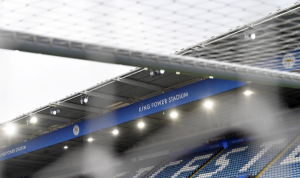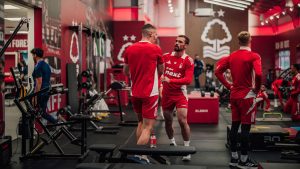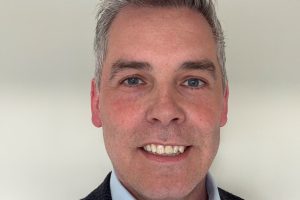Interview: Polly Bancroft – ‘Some of the boardrooms I visit, I’m sometimes the only woman in there’
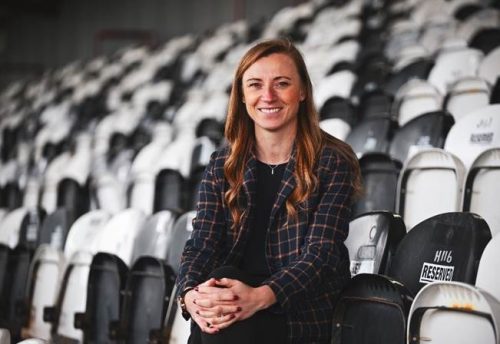
Grimsby Town FC CEO, Polly Bancroft, has been named as an Advisory Board member for the newly-launched Executive Master of Sport Leadership course, offered by the Carnegie School of Sport at Leeds Beckett University.
The program is aimed at championing inclusivity and creating pathways for diverse candidates to access top-level executive roles in the sports industry.
Bancroft, who joined Grimsby Town FC from Manchester United Women, brings nearly two decades of experience in football and sports leadership. We sat down to speak to her before a recent League Two game at Blundell Park.
What sort of challenges have you come up against during your career in football?
Early on in my career I came up against some really misogynistic views. So, for example, one of the the bosses that I had felt that it was okay for girls to play football, but not women. And that when I was working in women’s football, so I was just really quite shocked at that type of attitude.
There have always been challenges, but mainly the attitude of certain people. We’re still a way off parity in the game and there’s obviously huge amounts still to do, but it’s mainly the attitudes of football not being a sport for women and girls to either participate in or to work in or to watch.
So, that kind of comment so early in my career was, was a bit of a shock.
It’s more around how you tackle the barriers, and when you know deep down that something just isn’t right. I suppose you’ve got a few options, how you react, fight or flight, or actually work with it, and I’ve always tried to work with it.
So that early experience has spurred you on?
Exactly, yeah, just prove people’s archaic views wrong
And why do you think you’ve been chosen for this position on the board of the course at the Carnegie School of Sport at Leeds Beckett University?
Firstly, I’m an alumni of the university. So I have already strong links to the university. I had a great experience, studying for a sports degree, and since then I’ve always worked in sport, both domestically, for the FA, for the Football Foundation, for Brighton, Manchester United and now Grimsby town. I’ve also worked internationally as well, with UEFA out in Switzerland. So I think that mix of experiences, from national governing body to club to Confederation, has hopefully given me some good experiences to feed into the panel, which hopefully then the students or the cohort on the course will be able to benefit from being female in football as well.
My inclusion probably adds to the EDI strands that they’ve got running throughout the course as well.
Is there a target audience for the course?
Not specifically, no. And you know, it should be open to everyone, and it is open to everyone. But really we’re keen to get a diverse group on there. It’s a diverse panel, and we want that reflected in the cohort, or certainly that people apply to go on the course.
Can we talk a little bit about Grimsby Town? Why did you come to Blundell Park?
I heard Debbie Cook [previous Grimsby Town CEO] speak at a conference around two years ago and see was excellent. She was speaking about the barriers we discussed earlier.
I’d not considered a role as a chief executive of football club until two years ago. I just didn’t think it was an option for me. The game has very few visible female role models. I was aware of Karren Brady earlier in my career, but I’ve never really thought that this could be a role for me.
So, it was only two years ago, when I heard Debbie speak so impressively, that I became really interested in being a CEO. ever did I think I would be taking Debbie’s role 18 months after.
When I met Jason Stockwood and Andrew Pettit, the owners of Grimsby Town, I was really impressed with them as individuals, and the way they work. There’s no ego. They’ve got a really sensible approach, which is how I work as well. They’ve got the passion for the sport as have I and they’re strategic.
I just feel very calm. They’re just really aligned with how I work as well. And I think because I’ve grown up with the sport and educated myself along the way.
Some of the clubs and organisations that I’ve been at previously – the layers can take a bit of time to work through. So decisions haven’t been taken that quickly, whereas here I’ll report directly into the owners and the board and that can help move things along at
It’s also great having the remit to look after the men’s first team, women’s first team, Academy and the business part, which was was a big plus for me as well. It’d just previously managed a department.
Did you do speak to Debbie? Or did Debbie contact you after you’ve taken the role?
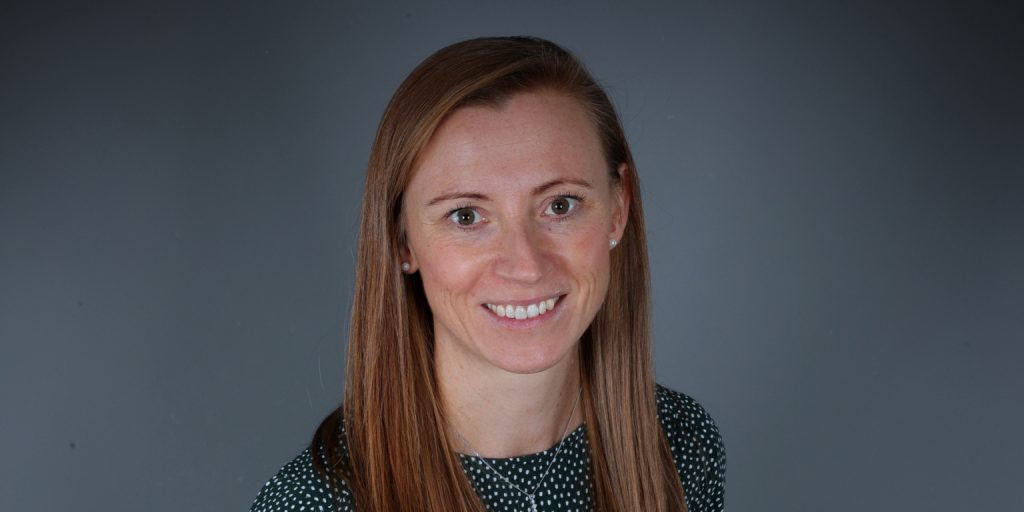
Polly Bancroft
Yeah, we’re still in touch. She was brilliant in the whole process for me. Obviously, she’s still working at the EFL, so it’s nice to see her around and she’s still local too.
You’ve been working in football for 18 years – do you see it changing for the better in terms of diversity?
If you look at women’s football and women in football, they’re separate, but a huge amount has changed, particularly for women’s football, post-England women winning the Euros a couple of years ago. That was that did huge amounts for women and girls and the elevated role models within the game.
As for women working in football and men’s football, there’s still a bit to go. Some of the boardrooms I visit, I’m sometimes the only woman in there. I think there’s only five or six female chief execs in the 92 in the Football League. I mean, who knows what you determine a success, but even just to get five or six out of 92 isn’t strong enough for me.
So, by joining the advisory panel, I’m trying to raise the profile of women in these more senior roles, to try and hopefully inspire other people to come through the pipeline as well. Because there’s no reason why women shouldn’t be in these jobs. Hopefully I can help inspire some people. Whether they want to do or not is up to them.
The season at Blundell Park has probably started better than anybody at the club had hoped. What are your goals behind the scenes this season, on and off the pitch?
The vision is to climb through the leagues. For the men’s first team, the aim is to get promoted. Whether that happens this season or the next two or three, we’re not sure. We’ll obviously try and make it work as quickly as possible. But anything that’s better or better than last year will be better.
The guys are doing an amazing job on the women’s first team side. They’re in tier six. So equally, want to climb through the leagues. And we say leagues as plural, we don’t want to just stop when they’re doing really well.
Off the pitch, this is a community club, so really want to work more within the community, both in terms of outreach and, again, strategic outreach, so making sure that we’re working with the most deprived areas and where the need is greatest, but also making sure that we’re bringing people into Blundell Park as well, whether that’s to watch the men’s team or the women’s team or an academy team.
And we want to operate sustainably. And that, again, leads into how I was talking about Jason and Andrews approach. We’re applying for B Corp, so we want to be really sustainable. That’s not just about environmental practices, but also financial sustainability and looking after our staff.
We also want to increase our commercial revenues and really have a think about how we diversify our income generation. So that’s not just about getting more commercial partners in, but it’s looking at the profit and loss of our operation. Can we work more effectively? So it’s across the board, really around trying to find creative partners to match what we’re already doing and the work of the Foundation and the Academy.

